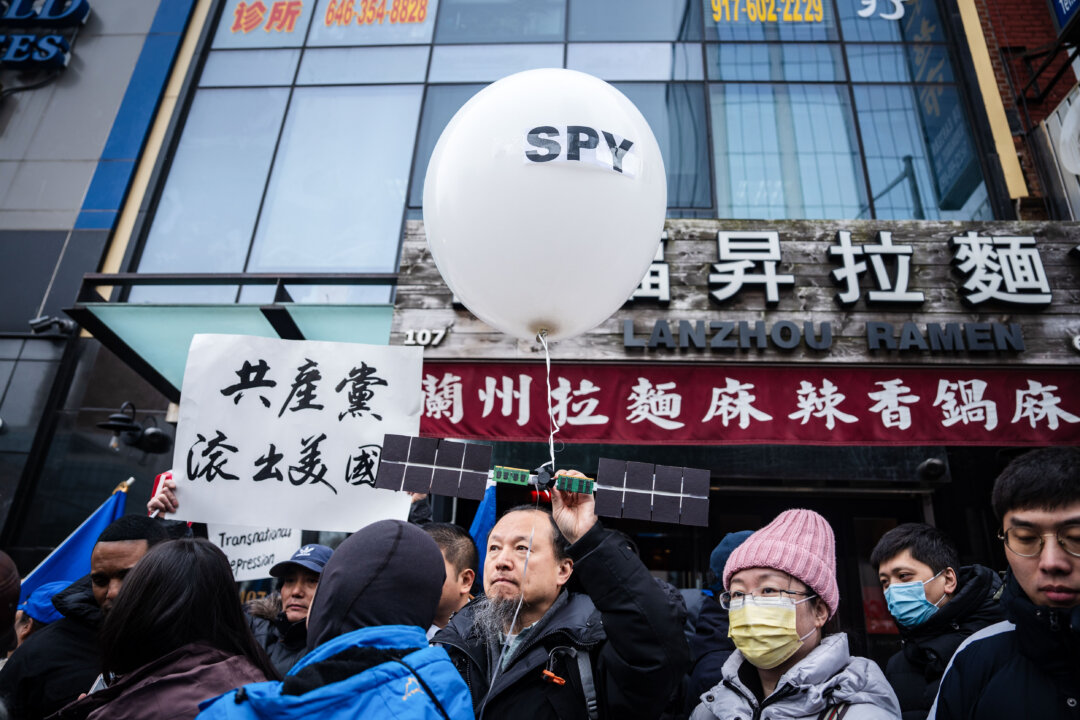The defendant, Chen Jinping, is scheduled to be sentenced on May 30.
U.S. prosecutors are seeking a three-year prison sentence for a Chinese American citizen accused of operating a secret police station for Beijing in Manhattan.
Chen Jinping, who pleaded guilty last December for conspiring to act as an illegal agent, is scheduled to be sentenced in Brooklyn Federal Court before U.S. District Judge Nina Morrison on May 30. Chen and a co-defendant, Lu Jianwang, were arrested in April 2023.
The hidden outpost was established in February 2022, under the auspices of a Chinese organization called the America ChangeLe Association in Manhattan’s Chinatown. At the time of their arrest, Chen was the association’s secretary general, while Lu was the former president.
According to prosecutors, the defendants had set up and operated the station at the behest of the Chinese Communist Party (CCP) to conduct transnational repression schemes in coordination with the regime’s Ministry of Public Security.
Chen and Lu’s arrests followed a 2022 report published by Spain-based advocacy group Safeguard Defenders that China had set up more than 100 overseas police stations in 53 countries.
In a sentencing memorandum filed on May 16, prosecutors said the case represents the first known prosecution related to the Chinese regime’s “practice of opening and operating undeclared police stations in foreign nations” to assist the CCP in “enforcing its laws throughout the world.”
Prosecutors explained that their recommendation of a three-year sentence for Chen was based on the “serious nature” of his conduct.
“Such a sentence would constitute just punishment, reflect the severity of the defendant’s conduct, promote respect for the law, and provide the specific and general deterrent effect called for by the defendant’s offense,” prosecutors wrote.
In contrast, Chen’s defense lawyer, Susan Kellman, told the judge in a sentencing memorandum that her client should be put on supervised release, which could include a “healthy dose of community service.”
According to Kellman, Chen has “expressed remorse for his wrongdoing.”
Kellman also highlighted several letters from her client’s family and friends that were attached to her sentencing memorandum. The letters, from Chen’s family and friends, including a pastor, explain why her client “is deserving of this Court’s mercy,” Kellman added.
Prosecutors acknowledged the letters and how they showed Chen’s personal history and family relationships, but didn’t believe these should influence their recommended three-year sentence, according to their sentencing memorandum.
“The crime of conviction does not represent aberrant behavior; the defendant is charged with dedicating himself on a consistent basis to accomplishing and hiding the unlawful ends of a repressive government,” prosecutors wrote.
To support their position on sentencing, prosecutors pointed to how Chen was caught deleting his communications on the Chinese messaging platform WeChat, despite warnings from FBI agents. His deleted communications included chats with an official from China’s Ministry of Public Security and a deputy director of the municipal public security bureau in southern China’s Fuzhou city.
Chen’s actions, which prosecutors described as obstruction of justice, prevented FBI agents from recovering certain messages he had deleted.
“Obstruction of justice is a particularly insidious offense because it undermines law enforcement’s capacity to fully investigate serious criminal activity and erodes public confidence in the legal system,” prosecutors wrote.
“Moreover, in this context, the defendant’s obstruction literally prioritized the impunity of the CCP over the sovereignty and legitimacy of the United States government.”
Another argument prosecutors presented was that Chen was one of three individuals “trusted as regular interlocutors for the CCP officials responsible [for] the overseas police station.”
Prosecutors also referenced several prior cases, including that of a New York businessman, An Quanzhong, who was sentenced to 20 months in prison in March. An was found guilty of crimes related to Operation Fox Hunt, an extralegal initiative by Beijing to repatriate alleged fugitives and dissidents to China.
Chen and Lu’s secret police station in Manhattan had also taken part in “transnational repression activities in targeting an Operation Fox Hunt victim located in California,” prosecutors said.
Prosecutors concluded their sentencing recommendation by urging the judge to consider “the victims who were harassed and surveilled because of the actions of the defendant and his co-conspirators.”

